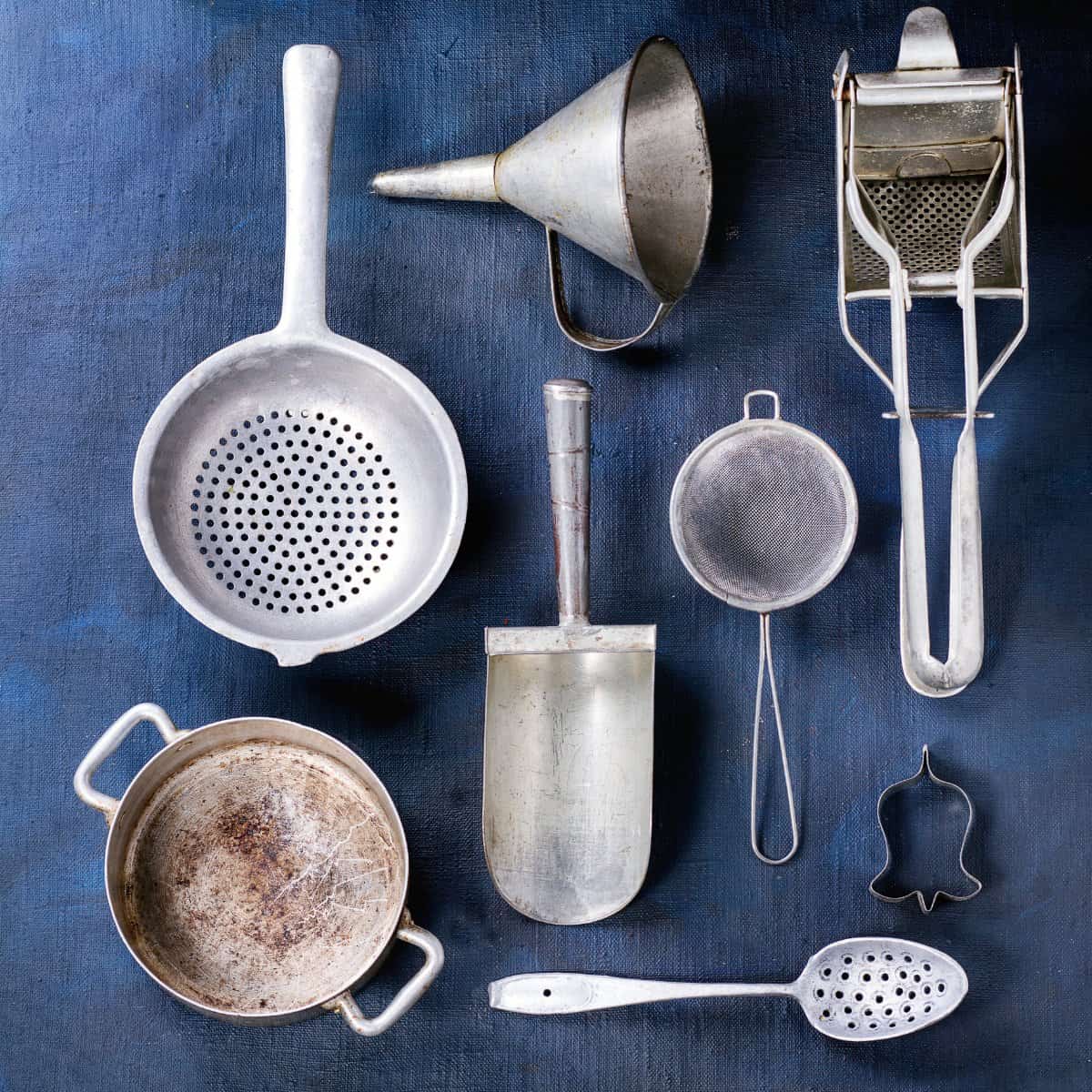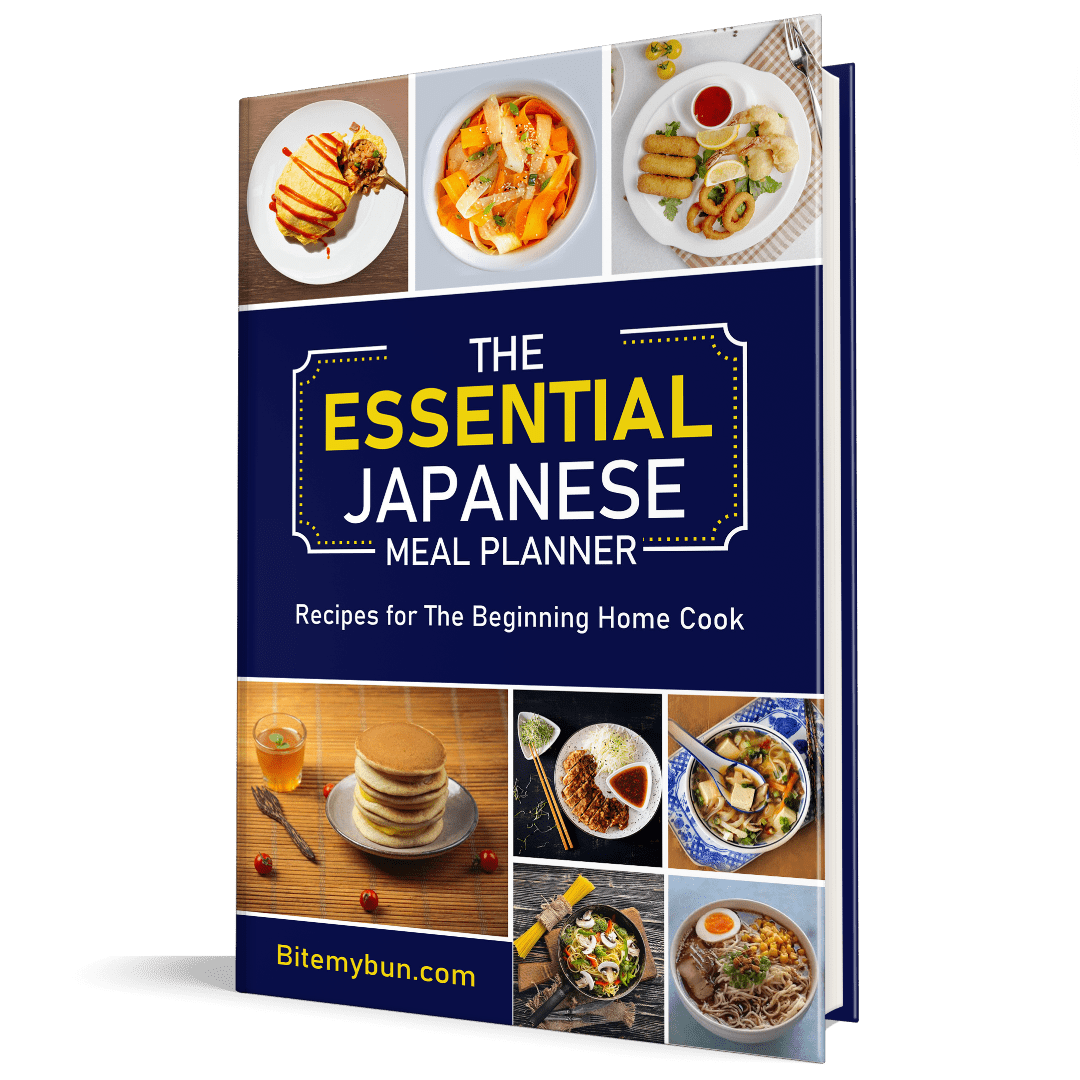Cooking with Aluminum: The Do’s and Don’ts for Safe and Healthy Meals
Is aluminum a good material for cookware? It’s cheap, lightweight, and heats up quickly, but it’s also soft and prone to warping.
Aluminum is a great material for cookware because it’s lightweight, heats up quickly, and is inexpensive. It’s also great for making pots and pans because it’s easy to work with.
But is it the best material? Let’s take a closer look.


Check out our new cookbook
Bitemybun's family recipes with complete meal planner and recipe guide.
Try it out for free with Kindle Unlimited:
Read for freeIn this post we'll cover:
Aluminum Cookware: A Smart Choice for Your Kitchen Needs
When it comes to choosing between aluminum and steel cookware, it ultimately depends on your personal preferences and needs. However, here are some key differences to keep in mind:
- Aluminum is an excellent conductor of heat, which means it heats up faster and more evenly than steel.
- Steel is a harder and more durable material compared to aluminum, making it a better choice for certain cooking tasks, such as forging or pounding meat.
- Aluminum is typically cheaper than steel, making it a more popular choice for those on a budget.
- Steel cookware is usually heavier than aluminum, which can be a pro or con depending on your needs.
Types of Aluminum Cookware
Not all aluminum cookware is created equal. Here are some examples of different types of aluminum cookware you may come across:
- Pure aluminum cookware: This type of cookware is made from 100% aluminum and is usually thin and relatively inexpensive.
- Aluminum sheet cookware: This type of cookware is made by pressing aluminum sheets into the desired shape and is slightly thicker and more expensive than pure aluminum cookware.
- Hard-anodized aluminum cookware: This type of cookware is made by treating aluminum with an electrochemical process that makes it harder and more durable than regular aluminum cookware.
- Forged aluminum cookware: This type of cookware is made by hammering or pressing aluminum into shape, making it thicker and more durable than other types of aluminum cookware.
Aluminum Cookware Safety
While aluminum cookware is generally safe to use, there are a couple of potential concerns to keep in mind:
- Aluminum can react with certain acidic foods, such as tomatoes or citrus, causing the metal to leach into the food. To avoid this, it’s best to use coated aluminum cookware or avoid cooking acidic foods in uncoated aluminum cookware.
- Some people have heard that aluminum cookware is linked to Alzheimer’s disease, but there is no scientific evidence to support this claim.
Why Aluminum is a Great Choice for Cookware?
Aluminum is a chemical element with the symbol Al and atomic number 13. It is a wonder metal that is abundant in the earth’s crust, making it an inexpensive choice for cookware. It is a popular choice for cookware because it is a great conductor of heat, meaning it can produce and distribute heat evenly, creating an ideal cooking surface.
Aluminum is a Fast Conductor of Heat
Aluminum is a great conductor of thermal energy, which means it can transfer heat faster than other metals. It compares favorably with other metals like copper and steel, and it is measured in watts per meter Kelvin. This makes it a great choice for cookware because it heats up quickly and evenly, reducing cooking time.
Aluminum is Thin and Strong
Aluminum is a thin and strong metal that is ideal for creating cookware. It is generally known for its strength and durability, making it a great choice for cookware that is prone to warping. It is also a lightweight metal, which makes it easy to handle and maneuver in the kitchen.
Aluminum is Naturally Resistant to Oxidation
Aluminum is naturally resistant to oxidation, meaning it forms a passive layer of oxide on its surface when exposed to air. This layer prevents further oxidation from forming, creating a barrier that protects the metal from corrosion. This makes it a safe choice for cookware because it prevents the metal from reacting with acidic foods.
Anodized Aluminum is Even Better
Anodized aluminum is a process that creates a thicker layer of oxide on the surface of the metal, making it even more resistant to corrosion. This process is commonly used in commercial cookware and creates a non-stick surface that is easy to clean. Anodized aluminum cookware is also more durable and scratch-resistant than regular aluminum cookware.
Aluminum vs Stainless Steel Cookware
Aluminum cookware is generally cheaper than stainless steel cookware, making it a great choice for those on a budget. Stainless steel cookware is a great conductor of heat, but it takes longer to heat up and distribute heat evenly. Aluminum cookware is a faster conductor of heat, making it a better choice for cooking times.
Aluminum Cookware: Separating Fact from Fiction
While it is true that aluminum can react with certain types of foods, such as those that are highly acidic or contain a lot of water, the effects of this reaction are usually quite small and unlikely to cause any significant harm.
- For example, if you were to cook a dish that contained a lot of fresh tomatoes or marinated in a highly acidic sauce, it is possible that some of the aluminum from your cookware could leach into the food.
- However, the amount of aluminum that would be present in the food as a result of this process would be extremely small and would not pose any significant health risks to the body.
- Additionally, there are certain types of aluminum cookware, such as those that are coated with a non-stick surface or forged from a sheet of aluminum and then covered in a layer of stainless steel, that are less likely to react with food and are considered a safer choice for people who are concerned about the potential effects of aluminum on their meals.
What Should You Consider When Choosing Aluminum Cookware?
If you are considering purchasing aluminum cookware, there are a few things that you should keep in mind:
- Look for high-quality brands that are updated with the current safety standards and published research.
- Consider the type of aluminum cookware that you are purchasing. For example, non-stick aluminum cookware is typically a safer choice than plain aluminum cookware because it is less likely to react with food.
- Be sure to ask the manufacturer or retailer about the specific type of aluminum that is used in the cookware. Pure aluminum is typically considered to be safer than other types of aluminum that may contain additional elements.
- Think about how you will be using the cookware. For example, if you plan to store your aluminum cookware in a damp or humid environment, it may be worth investing in a higher quality brand that is less likely to rust or corrode over time.
- Finally, be sure to follow the manufacturer’s instructions for the care and preparation of your aluminum cookware. This will help to ensure that your cookware functions properly and lasts for a long time.
Why You Should Avoid Using Uncoated Aluminum Cookware with Acidic Food
According to research, aluminum is an excellent metal for cooking because it is lightweight, highly conductive, and heats up quickly. Despite this, it is not suitable for all types of cooking. Aluminum can cause a direct link between acidic foods and the metal, which can create a reaction that affects the taste and quality of the dish.
The Risks of Using Uncoated Aluminum Cookware with Acidic Foods
While aluminum is generally considered safe for cooking, it is important to keep in mind that certain types of foods can cause a direct link between the metal and the dish. Some of the risks associated with using uncoated aluminum cookware with acidic foods include:
- Increased consumption of aluminum, which can have negative effects on the body.
- The creation of harmful compounds that can significantly alter the taste and quality of the dish.
- The potential for the aluminum to react with the acid in the food, creating compounds that are potentially harmful to the body.
The Best Cookware for Acidic Foods
If you want to avoid the risks associated with using uncoated aluminum cookware with acidic foods, there are several types of cookware that are better suited for this type of cooking. Some of the best options include:
- Stainless steel: This type of cookware is highly resistant to corrosion and is an excellent choice for cooking acidic foods.
- Ceramic: Ceramic cookware is non-reactive and does not contain any harmful compounds that can leach into the food.
- Glass: Glass cookware is completely non-reactive and is an excellent choice for cooking acidic foods.
The Bottom Line
While aluminum is generally considered a good material for cookware, it is important to consider the type of food you are cooking before choosing a cooking vessel. If you are marinating or cooking acidic foods, it is best to avoid using uncoated aluminum cookware. Instead, opt for stainless steel, ceramic, or glass cookware to ensure that your food is safe and delicious.
Conclusion
So, is aluminum a good material for cookware?
It’s a great choice for cooking with heat conductivity, but you have to be careful with acidic foods and uncoated aluminum. Plus, you should always use non-stick coating for better durability.
So, don’t forget to read the fine print and don’t be afraid to ask questions. You can always ask a friend like me!
Check out our new cookbook
Bitemybun's family recipes with complete meal planner and recipe guide.
Try it out for free with Kindle Unlimited:
Read for freeJoost Nusselder, the founder of Bite My Bun is a content marketer, dad and loves trying out new food with Japanese food at the heart of his passion, and together with his team he's been creating in-depth blog articles since 2016 to help loyal readers with recipes and cooking tips.
